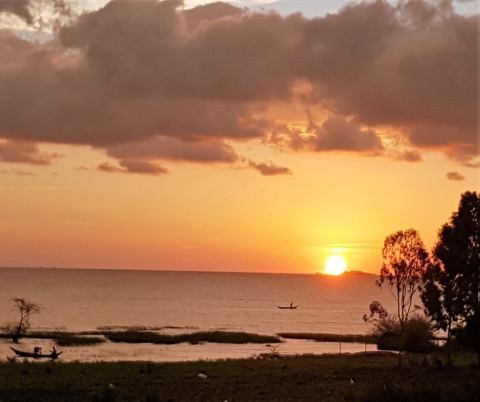Addressing Adolescent Mental Health and Intimate Partner Violence in Muhuru Bay, Kenya (2023-2024)
The links between mental health problems and intimate partner violence (IPV) are well established, yet there are few prevention approaches that directly target both outcomes. Mental illness and IPV both often emerge during adolescence, making it a critical developmental period for prevention – especially in settings with scarce mental health resources or support for survivors of violence.
This team conducted a mixed-methods pilot evaluation of the Prevention Program for Adolescent Relationship and Emotional Development (PREPARED) to test implementation outcomes and measure mental health and relationship behavior changes among adolescents in rural Kenya. PREPARED is a 6-session, non-specialist delivered, universal prevention program to promote mental health and prevent IPV. Overall, results support the successful implementation of the intervention in a low resource setting. Findings reveal positive changes to adolescent mental health and some relationship-related behaviors.
Learn more about this team’s findings by reading their team profile.
Timing
Summer 2023 – Spring 2024
Team Outputs
PREvention Program for Adolescent Emotional and Relationship Development (PREPARED): Novel manualized treatment designed to address adolescent mental health and prevent emergence of intimate partner violence
Implementation of the PREvention Program for Adolescent Relationship and Emotional Development: Adolescent perspectives (Poster presented at Fortin Foundation Bass Connections Showcase, April 17, 2024)
Adolescent Mental Health and Intimate Partner Violence in Kenya (Team profile; 2024 Fortin Foundation Bass Connections Virtual Showcase)
This Team in the News
Interrupting Relationship Violence When It's Most Likely to Start
Image: Muhuru Bay Sunset, by Victor Ochieng, licensed under CC BY-SA 2.0

Team Leaders
- Savannah Johnson, Arts and Sciences–Psychology and Neuroscience–Ph.D. Student
- Eve Puffer, Arts & Sciences-Psychology and Neuroscience
/undergraduate Team Members
-
Madalyn Bielskis, Psychology (AB)
-
Allison Falls, Psychology (BS)
-
Paridhi Goel, Psychology (AB)
-
Lauren Lloyd, Psychology (AB)
-
Vanessa Santini Gomes
/yfaculty/staff Team Members
-
Ernestine Briggs-King, School of Medicine-Psychiatry and Behavioral Sciences
/zcommunity Team Members
-
WISER Girls Secondary School, Kenya
-
Florence Jaguga, Moi Teaching and Referral Hospital
